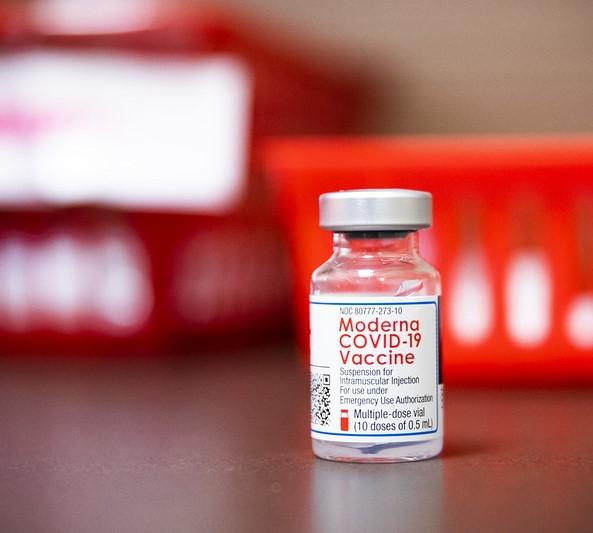Certain people who received Moderna and all who got Johnson & Johnson (J&J) COVID-19 vaccines should receive a booster dose, and in general, people should stick with the original vaccine they got, an advisory panel for the Centers for Disease Control and Prevention (CDC) said today.
The recommendation comes a day after the Food and Drug Administration (FDA) authorized on an emergency use basis booster doses of the two vaccines and said people can get a booster shot that's different from their initial vaccine.
The vote on each of the vaccine boosters passed unanimously. The ACIP decision isn't binding, but the CDC often follows the recommendation of its panel, the Advisory Committee on Immunization Practices (ACIP). CDC officials will make the final call—the final step before broader use of the Moderna and J&J boosters begins.
CDC officials today said 11 million Americans have already received COVID-19 vaccine boosters.
Much broader recommendation for J&J
For Moderna, ACIP members said people ages 65 and older and younger adults in certain risk groups should get a third booster dose. They also said people ages 18 to 49 with underlying medical conditions may bet a booster dose, as well as those ages 18 to 64 who are at increased risk due to occupational or institutional settings.
The Moderna booster, given as a half dose, would be given at least 6 months after the second dose. In late September, ACIP made a similar recommendation for the Pfizer-BioNTech vaccine.
For J&J, the advisers recommended much more broadly: a booster dose for anyone age 18 and older.
With its dose-mixing recommendation, ACIP's recommendation was a bit more limiting than the FDA's decision yesterday that opened the door to people getting any of the three vaccines as a booster. ACIP said people should aim for getting a booster that matches the initial vaccine, but if not possible, can get a different brand, based on availability and risk profile of the vaccine.
Last week, a preprint study from researchers based at the National Institutes of Health that examined mixed doses in a small number of patients found that all combinations were safe and immunogenic, but J&J recipients got a bigger immune boost from a dose of mRNA vaccine when compared with a second dose of J&J.
CDC officials today said they are working on communications pieces for the public on what they need to know about the different booster options, such as posters to be displayed at pharmacy vaccination sites.
Examining safety, protection
During the discussions, the group examined safety profiles for the two vaccines under discussion today, with data showing that rates of myocarditis in younger adults—generally mild with prompt resolution—were higher for Moderna than for the Pfizer-BioNTech vaccine. They noted, however, that the Moderna booster will involve a half dose, not the full dose associated with the rare heart conditions.
The panel also pored over vaccine efficacy (VE) data for the two vaccines. For Moderna, they learned that VE against infection declines over time against the backdrop of Delta (B1617.2) variant circulation and time since vaccination. VE against hospitalization was a bit lower in those age 65 and older and those with underlying conditions.
For J&J, VE was lower against infection and hospitalization, but studies were inconsistent on waning protection.
Other US COVID-19 news
- The CDC COVID Data tracker shows that 57.1% of Americans are fully vaccinated against COVID-19, 66.1% have received at least one dose, and 5.9% have received a booster shot. According to a CNN analysis, 1.3 times as many booster shots are being administered each day compared with first shots.
- School enrollment declined by nearly 3 million students—from about 76 million to 73 million—during the first year of the pandemic, according to NBC News.
- The 7-day average of new daily COVID-19 cases is 76,496 and 1,532 daily deaths, according to the New York Times tracker. In all, the United States has reported 45,270,236 cases and 732,718 deaths due to COVID-19, according to the Johns Hopkins COVID-19 tracker.
CIDRAP News editor/writer Lianna Matt McLernon contributed to this story.






















